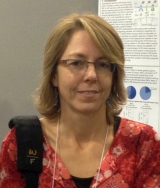 |  |

I head the Laboratory of Computational Genetics, in the Department of Genetics at Rutgers University. Computational Genetics represents my joint interests in human genetics, data science, statistical genetics, and bioinformatics. The goal of our projects is to contribute to the identification of human disease genes. I am also head of the Computational Genetics Program in the Human Genetics Institute of New Jersey (hginj.org).
Since 2015 I have been co-director, with Dr. Steve Buyske (www.stat.rutgers.edu/home/buyske/Home.html), of the Coordinating Center (CC) for the NHGRI Genome Sequencing Program (gsp-hg.rutgers.edu). The National Human Genome Research Institute (NHGRI) Genome Sequencing Program (GSP) uses genome sequencing to identify genes and genomic variants underlying human inherited disease across its full spectrum, including rare diseases likely to be due to rare variants with strong effects (Mendelian), and common genetically complex diseases that are caused by many variants. Novel methods, tools, and knowledge gained through the GSP will be rapidly shared to enhance the ability of the community to pursue other human inherited diseases. The GSP Coordinating Center provides scientific leadership and expertise for specific cross-program objectives and coordination for administrative, logistical, and outreach activities.
Since 2008 I have been co-director, with Dr. Steve Buyske (www.stat.rutgers.edu/home/buyske/Home.html), of the Coordinating Center (CC) for The PAGE Study (pagestudy.org) (PAGE I 2008-2012; PAGE II 2013-2017). This study investigates population-specific variation in genetic disease susceptibility, focusing on non-European populations. You can read a 2013 press announcement at www.genome.gov/27554930. For this NIH-funded project the Rutgers coordinating center manages the quality control, integration, and dissemination of the large-scale genotype data generated in PAGE, performs genotype imputation and ancestry deconvolution, organizes group discussions and meetings, facilitates collaborations, and oversees the logistics of the PAGE study. Our work is facilitated by collaborators at the USC/Information Sciences Institute and Stanford University. The CC team members bring expertise in population, statistical, and quantitative human genetics, computer science, genome sequencing and bioinformatics. The CC's combined expertise will help advance PAGE II's research on understanding the global relevance of disease-associated alleles across diverse human populations.
My lab also maintains The Rutgers Maps (compgen.rutgers.edu/rutgers_maps.shtml) under the leadership of Dr. Andrew Nato at Marshall University (natolab.marshall.edu). An extension of our early work constructing genetic linkage maps using my MultiMap map-building software, the Rutgers Maps incorporate marker physical positions into a novel mapping approach to create combined physical-linkage maps. These maps contain over 28,000 markers genoytped in pedigrees and represent very comprehensive linkage maps. The Rutgers Maps also serve as a framework for interpolating the genetic map position of any marker, gene, or physical position in the genome. We have interpolated positions for over 50M SNPs onto the Rutgers Maps.
Other recent projects in the lab have included: (a) identification and characterization of schizophrenia (SZ) candidate gene regions from existing SZ genetic studies, (b) prioritization of genes in SZ candidate regions for further study, and (c) development of a bioinformatics pipeline that assists in identifying candidate genes for mouse developmental QTL.
PubMed link to list of my publications.